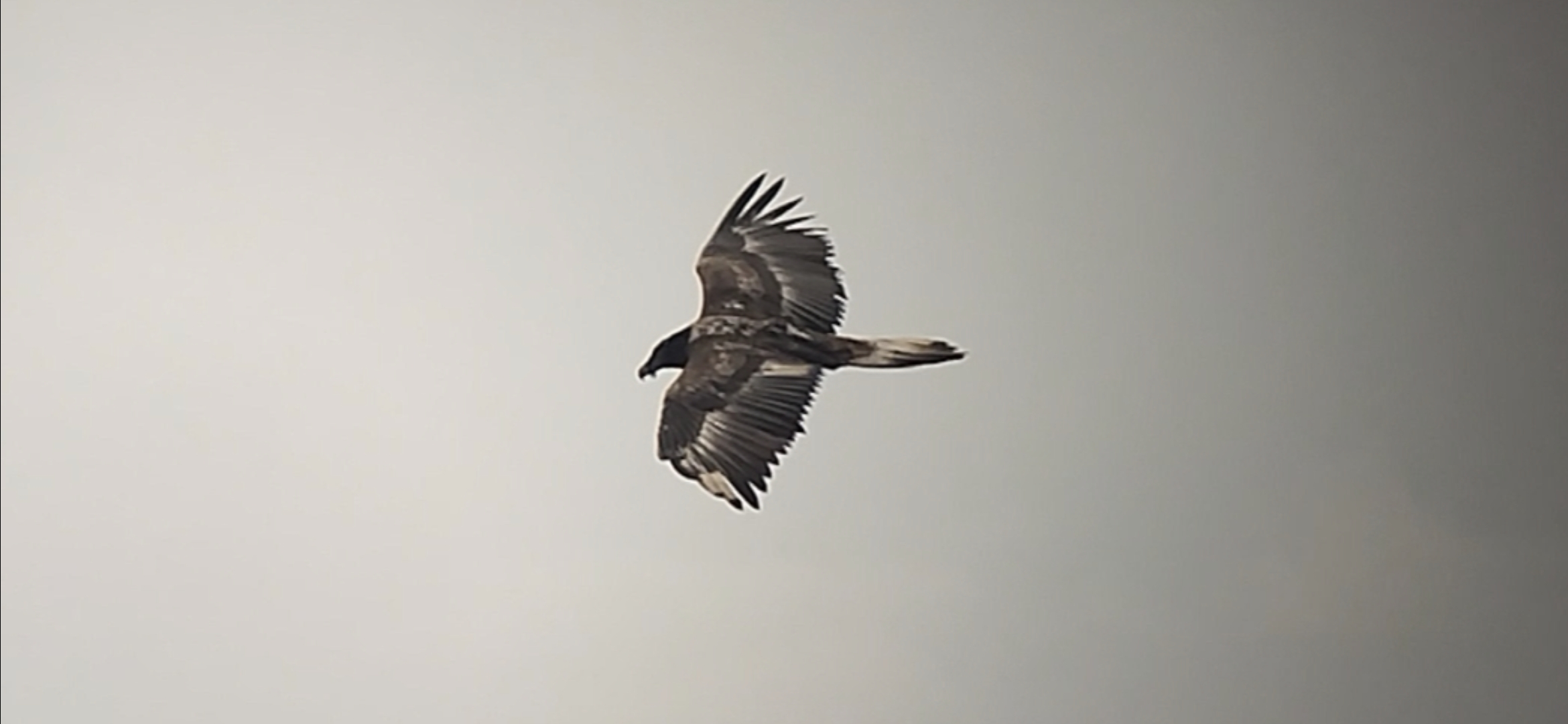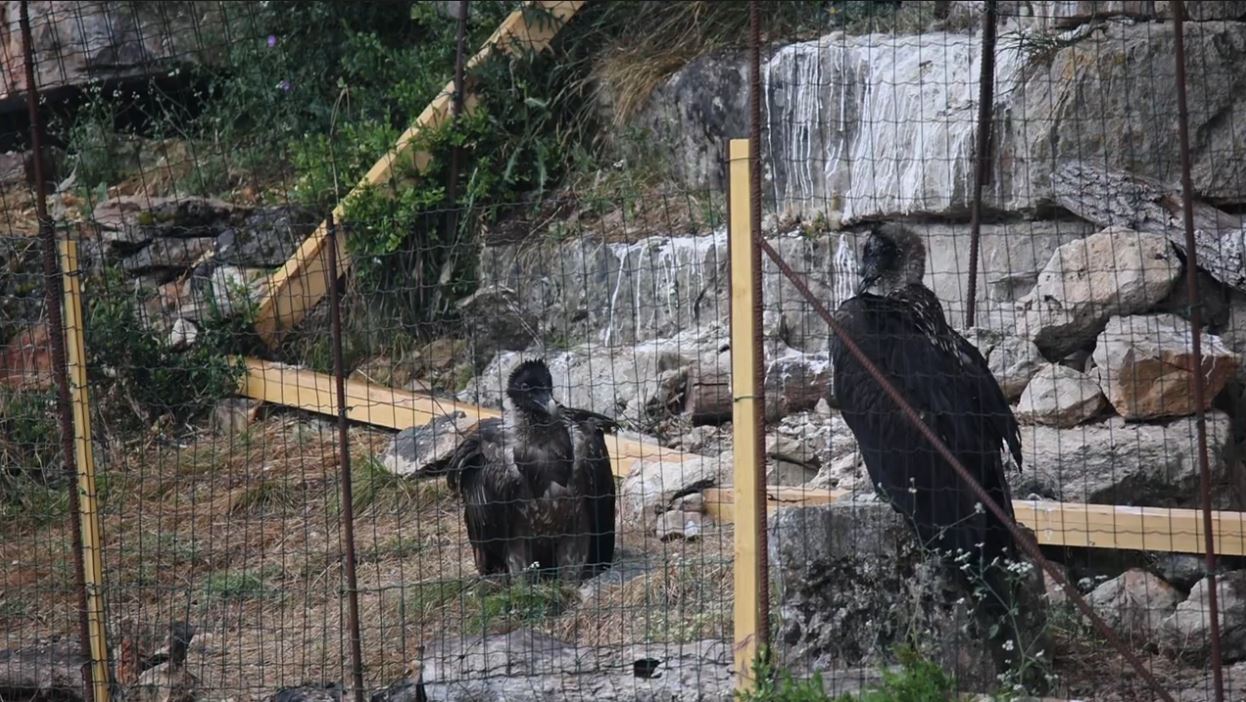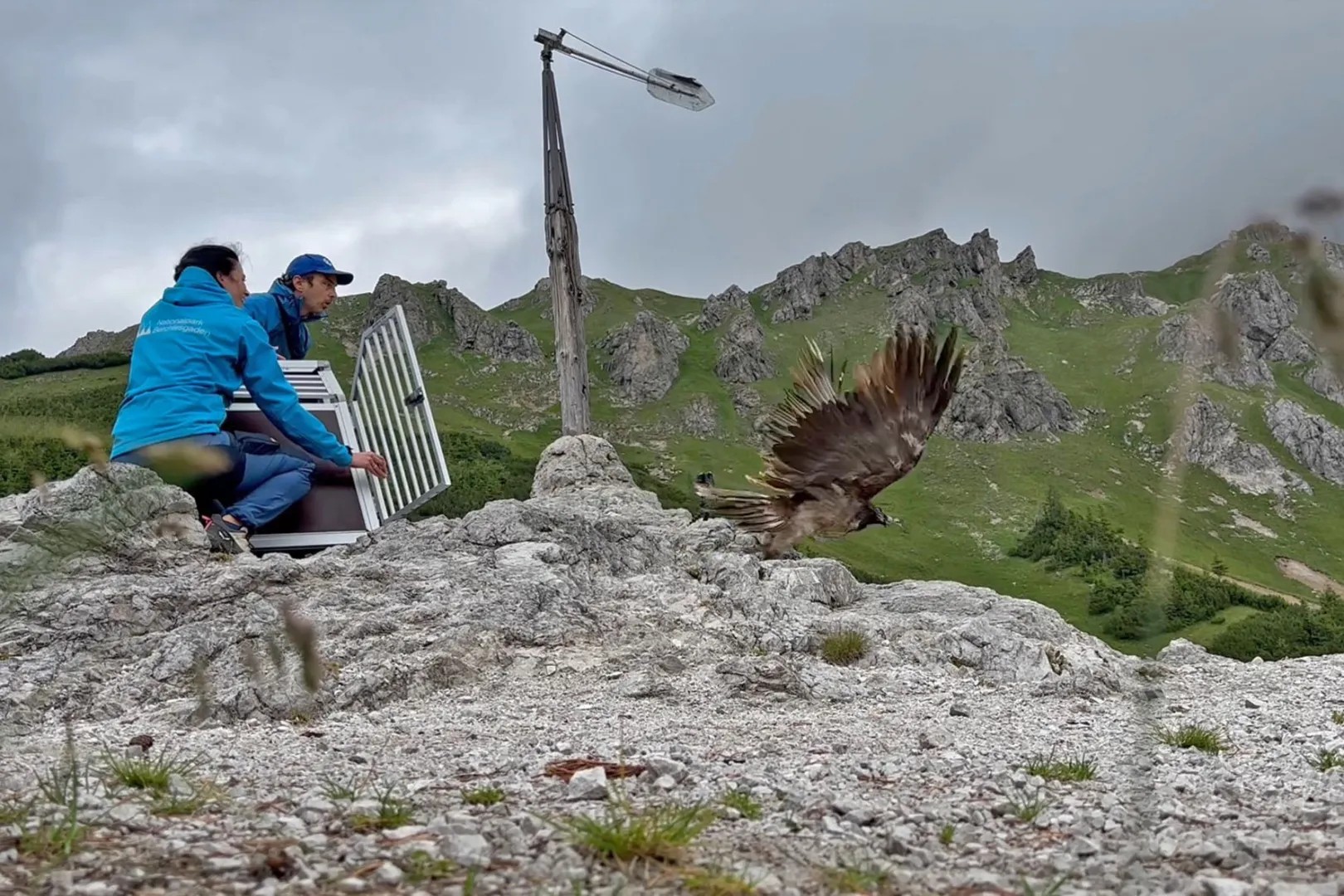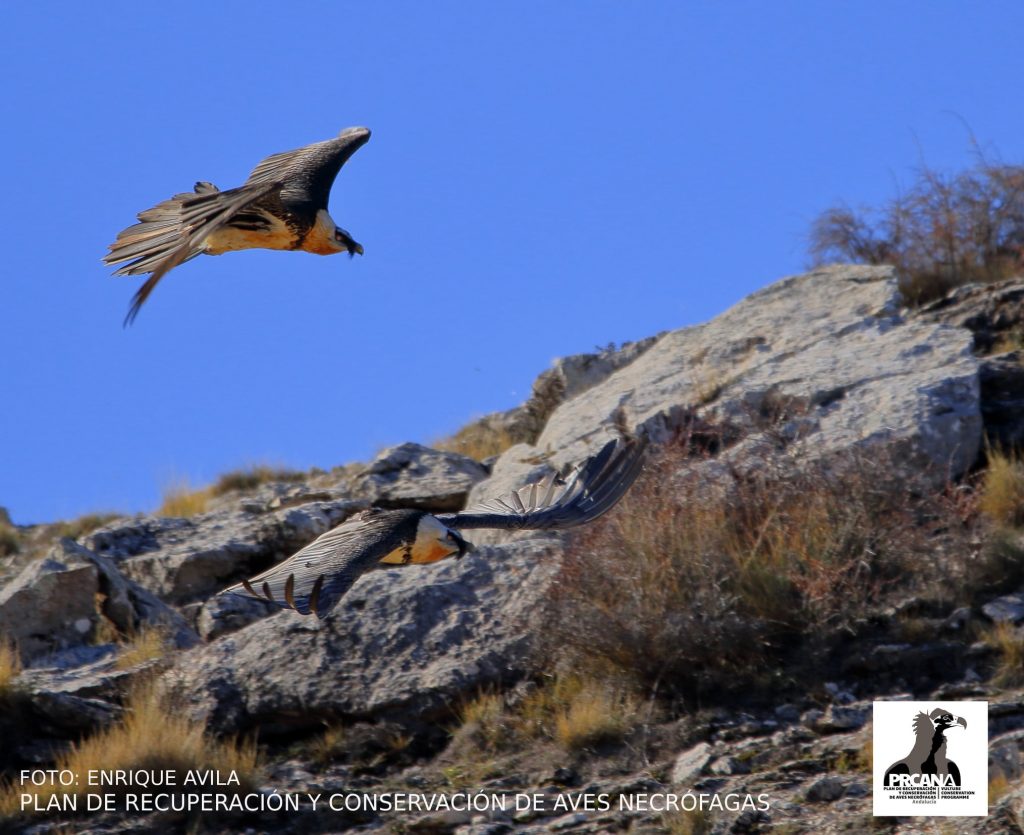
Following the busy and successful Bearded Vulture conservation work in Andalusia last year – release of 8 young into the wild, tagging the three wild-hatched chicks (new record) and monitoring territories – the new breeding season has begun, and it seems promising so far!
New 2021/22 Bearded Vulture breeding season in Andalusia
By 16 December 2021 in Andalusia, six breeding pairs built a nest and three more established pairs that, for the moment, have not built a nest but have been settled in their territories for more than a year. This is the case of Esperanza, the first chick that hatched in the wild back in 2015. Another remarkable observation is the pair Seprona and Ama that settled in the Sierra de Castril National Park for about a year. Previously, Seprona was paired with another female but chose Ama in the end.
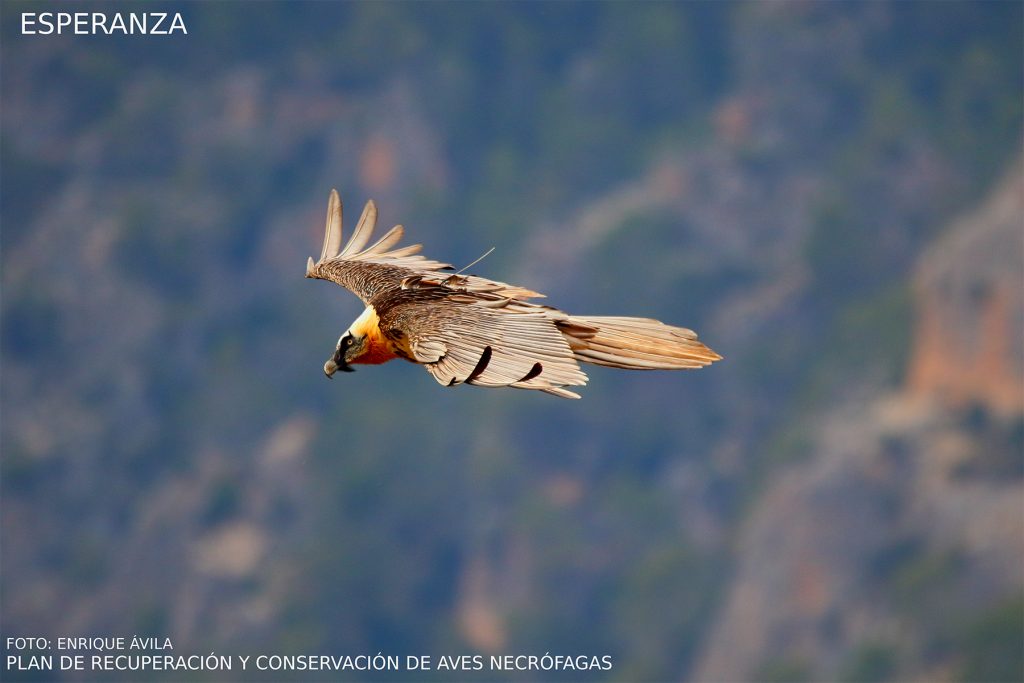
Another update on 23 December revealed that two pairs have already laid their eggs and are currently incubating. Furthermore, an additional four pairs built nests.
Update: 19 January 2022
There are already four Bearded Vulture pairs that have laid their eggs during the new breeding season. Additionally, two more pairs that constructed their nest will probably lay their clutches judging by their behaviour.
The team at Coordinación Plan de Recuperación de Aves Necrófagas de Andalucía closely monitors the breeding activities to look over the birds and record the time when the first eggs were laid, as it enables them to estimate the best period to climb the nests and GPS-tag the chicks when they hatch. This monitoring action provides valuable insight and helps evaluate the progress of the reintroduction efforts.
We cross our fingers for a promising breeding season in the region!
The Bearded Vulture reintroduction project in Andalusia
Bearded Vultures went extinct in Andalusia in 1986 mainly due to direct persecution, wildlife poisoning and human disturbance at the nesting sites. To bring them back, Junta de Andalucía, and us here at the Vulture Conservation Foundation started a reintroduction project in 1996, and the former Fundación Gypaetus was also created to manage the project. Since the first releases in 2006 and with the release of eight individuals this year, 79 Bearded Vultures have been released in Andalusia in the provinces of Jaén and Granada. Thanks to tackling threats and releasing birds, the population of the species is gradually increasing. There are currently five Bearded Vulture pairs and over 40 individuals in Andalusia.

